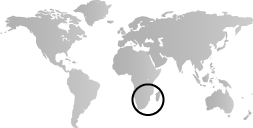The tensions created by official policies of racial segregation shape the course of artistic practice in much of southern Africa. The firm and rigorous establishment of British colonial rule throughout the region (with the exception of Portuguese East Africa, or Mozambique) and nineteenth-century attitudes espousing racial inequality after World War I solidify into South African apartheid. While the region witnesses the development of cosmopolitan art academies, universities, and museums, benefiting especially from the influx of European intellectuals fleeing World War II, black Africans are largely excluded from these elite institutions. Nonetheless, the art world provides an important site for the interaction of black and white southern Africans, as white artists and scholars gain inspiration from African visual aesthetics and begin to collaborate with their black counterparts. The nature of these relationships ranges from the aesthetic experiments of museum director Frank McEwen in Southern Rhodesia to the more egalitarian artistic alliances forged within the New Group or at the Polly Street Centre workshops in South Africa. Beginning in the 1970s, many black and white South African artists assume a distinctly activist stance, using their art to protest the disenfranchisement of black southern Africans through apartheid. Their sentiments and activities are supported by the African National Congress, the primary political advocate against apartheid that is involved in efforts both inside and outside Africa to mobilize international opposition to South Africa’s separatist policies. After apartheid’s collapse in 1991 and the removal of the United Nations cultural boycott on South Africa, the global audience for southern African artists broadens significantly.


